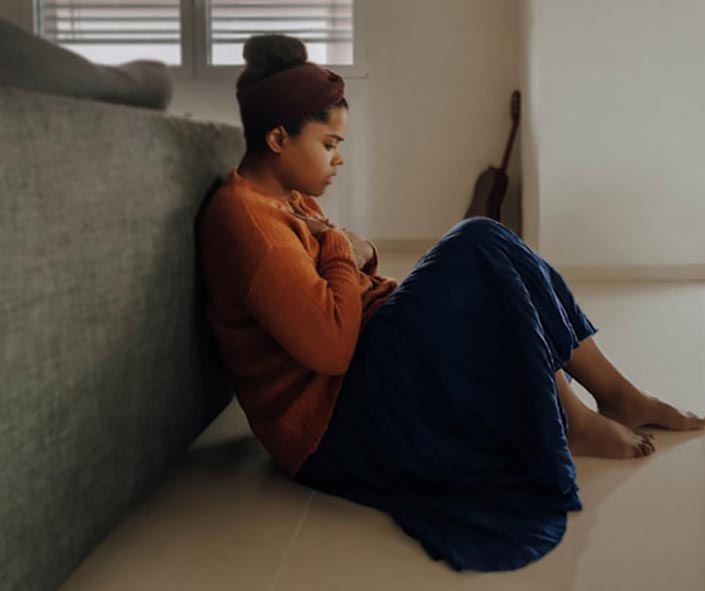By Brian F. Martin
“My thoughts are unpleasant most of the time, and I don’t know why.”
If that resonates with you, you’re not alone. For many, this sense of persistent sadness, numbness, or disconnection creeps into even the best days. Sometimes the day is going well, and then a thought comes — unexpected, uninvited — and you believe it. And that belief takes you from calm to uneasy, from content to low, from okay to depressed. But you don’t have to go with it. That thought is not the truth. It’s a habit of the mind formed long ago.
Understanding the Impact: Childhood Domestic Violence (CDV)
If you grew up in a home where there was domestic violence — violence between parents or toward a parent — you experienced what is known as Childhood Domestic Violence, or CDV. It is one of the least recognized Adverse Childhood Experiences (ACEs), but its impact runs deep. It alters how a child processes the world, sees themselves, and builds beliefs.
These impacts often carry into adulthood in ways that are hard to recognize. Thoughts that seem logical are actually old patterns. Beliefs that feel like truths are often built on early distortions. And the sadness that seems to arrive without reason may be the echo of an environment you never had the words to explain.
You may find that your inner world reacts even when your outer world is calm. Your mind may work against you in moments that otherwise feel good. This is not weakness — it is a reflection of how deeply the environment you grew up in shaped your thought patterns and emotional responses.
The Mind and Its Patterns
As adults who experienced CDV, we often find that our mind talks a lot — and what it says, we tend to believe. But much of what it says isn’t true. It’s the past replaying. It’s fear and shame masquerading as fact. And the most challenging part is this: the mind doesn’t whisper. It insists. It repeats.
When I met Byron Katie, she shared this truth: “When I listened to my thoughts, I suffered. When I didn’t, I did not suffer.” That is especially important for those of us who grew up with CDV. Your mind will often bring back the same untrue messages. But you don’t have to accept them. You can choose to observe without believing, and over time, replace them with thoughts rooted in compassion and clarity.
I wrote Invincible – The 10 Lies You Learn Growing Up with Domestic Violence and the Truths to Set You Free to help others recognize what they lived through and begin to change the internal dialogue that often results. Recognizing the mind’s patterns and learning not to follow them blindly is a powerful first step.
From Sad to Grateful: Insights from Chapter 4
In Chapter 4 of Invincible – The 10 Lies You Learn Growing Up with Domestic Violence and the Truths to Set You Free, titled “Sad to Grateful,” we explore how sadness — when named and understood — can become a bridge to something more sustaining. Gratitude doesn’t cancel pain, but it helps you carry it differently.
Here are some key insights:
- Sadness is not a weakness. It’s a signal.
- Gratitude isn’t blind optimism — it’s a practice that can slowly interrupt harmful thought patterns.
- Feeling unloved as a child can turn into deep-rooted beliefs of being unlovable. But those are beliefs — not truths.
- The real truth: You are worthy of love and care — even if you didn’t receive it then.
5 Coping Skills That Offer A New Way Forward
Here are a few ideas to help you begin disrupting the cycle of negative thinking:
- Notice the shift – When you feel your mood dip, instantly, pause. Then relax specific body areas like the face, shoulders, and chest, as this signals safety to the brain, calming the nervous system and reducing stress – a technique backed by Dr. Edmund Jacobson, who pioneered Progressive Muscle Relaxation to show how muscle tension fuels inappropriate levels of worry, fear, and anxiety.
- Challenge the thought – Is it true? Or is this one of the 10 lies?
- Replace it with a positive thought – Name something around you right now that brings calm or comfort. Ask, what am I most grateful for?.
- Practice gratitude in small ways – Not to cover pain, but to balance your internal view.
- Remember you’re not alone – Millions have lived through CDV. There is a shared strength and a growing community here to walk beside you.
The Truth You Deserve
If you often feel low and don’t know why, there may be an old story running in the background. One that began in childhood. But you don’t have to let it define your present.
You can learn to interrupt it. You can learn to listen to the quieter truth underneath. And most importantly, you can begin to trust that the part of you that creates, dreams, and connects is still there — and always has been.
Each time you choose not to believe the harsh voice in your head, you reclaim something. Each time you recognize in yourself a small act of growth, you begin to shift what’s possible.
Visit www.cdv.org to learn more, explore tools, and find space to begin or continue this journey. If you’re unsure if you’ve been impacted by CDV, you can find out by taking our free, private, 30-second screening.
Brian F. Martin is the founder of the Childhood Domestic Violence Association.

